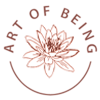What Are Boundaries?
Whether it delineates the limits between nations or individuals, boundaries are imaginary lines we draw around us, to help protect us from our environments. They are our fundamental right to say, “No”.
Boundaries protect our space, feelings and needs. Without boundaries, anyone could take advantage of us, make us uncomfortable or even hurt us. We use boundaries to outline what is our ‘personal space,’ which can change depending on the situation, person, or even how we are feeling at that moment. Think of sexual consent, or negotiating a contract, or even maintaining the 2-meters social distance — these are all boundaries.
If you have difficulty saying no, override your needs to please others, or are bothered by someone who is demanding, controlling, criticizing, pushy, abusive, invasive, pleading, or even smothering you with kindness, it’s your responsibility to speak up.
It’s easy to understand external boundaries as your bottom line. Think of rules and principles you live by when you say what you will or won’t do or allow.
Between parents and children, couples and even colleagues, everyone should set boundaries and have the capacity to maintain them. We all have feelings of what we are willing to accept and what we are not. The question remains whether we choose to exert them or not. Sometimes we are taught to suppress our boundaries, to accommodate others in the name of disturbing the ‘peace’. Boundaries reinforce that we prioritize our feelings of ease, safety and energy, before others.
Why Are Healthy Boundaries Important?
When we exert our boundaries, we reinforce that we value and respect ourselves; one of the biggest aspects of personal development. Our feelings, energy-levels, needs, levels of comfort, personal space — are a big part of who we are. Therefore, knowing our boundaries, means knowing ourselves. Listening and sharing our boundaries, means respecting ourselves.
This then shapes the manner in which we interact with others, and the way they interact with us. Exerting our boundaries reflect to those around us, that we hold ourselves sacred. It shows others how we will also treat them, and how we want to be treated — with respect and honoring.
As we state our boundaries, we chalk figurative space to be our true selves. Boundaries give us the space to be ourselves, because we do not have people, actions or beliefs from our environment imposing in our personal self.
How To Set Boundaries?
Step 1 – Figure out what you are comfortable, and what you are not. Listen to your body, your gut-feeling and your intuition, and trust it.
Step 2 – Communicate. It can be as simple as, “No.”
Physical Boundaries
- Someone comes too close to you, “I need a little more personal space.”
- “We don’t keep or consume pork at our house.”
- “Leena, if you don’t give your children arm bands, then they cannot swim in my pool.”
- “I would like to be touched like this.”
Emotional Boundaries
- “I do not feel comfortable talking about this.”
- “When you put me down in front of our father, I feel ashamed and powerless. I would like you to stop.”
Religious Boundaries
- “Before we eat, I will take a moment and say a prayer.”
- “Infidelity is a deal-breaker for me and I will not continue in this relationship if you cheat on me.”
Financial Boundaries
- “I will be eating my packed-lunch and not ordering out, because I am on a budget.”
- “You borrowed my money last week, and I would like you to pay me back.”
Time Boundaries
- “My Friday is reserved for family time. I will respond to work first thing on Monday.”
- “Louise I do not have time to go to the cinema with you this weekend. Can we meet next week?”
How Does Codependency Fit into Boundaries?
Codependency does not fit into boundaries, rather the opposite, it spills over boundaries. Remember, everyone has boundaries, but we do not always share them.
The essence of codependency in a relationship, is when there are no boundaries expressed (or followed). Boundaries draw our identities, it is what differentiates one another from just one. So, in the practical sense it means that the two identities are merged, which is the opposite of romantic. Picture this, Sarah’s friends become Mohammed’s friends. Sarah’s interests become Mohammed’s interests. Sarah’s expectations for Mohammed, become Mohammed’s expectations for himself. Do you see the problem?
Boundaries are our responsibility, we decide what is and is not allowed in our lives.
In a codependent dynamic, we permit another to impose themselves (their beliefs, expectations, actions and behaviors) in our sense of self. Without stating our boundaries, we give them the power to take advantage of our feelings of safety, comfort and energy. Healing relationships which are copdendant, is to set boundaries because it brings the relationship to a higher level of consciousness.
Okay, So Why Don’t We Set Boundaries?
We naturally learn to set boundaries when we are about 3-years old, as a way of creating our identities. At the ‘terrible threes’, children are learning how to say, “me,” “mine” and “no”. This repeats at adolescence, as we become more independent from our caretakers. Teenagers break the symbolic umbilical cord by forming a stronger sense of identity, which requires exerting boundaries. In family constellations therapy, this is a large body of focus.
Boundaries – Let’s stop asking why we do it, but rather asking why we allow it?
The issue arises when we express a boundary, and a caretaker does not listen or respect it — being forced to hug a relative when you did not feel comfortable doing it. Or perhaps when we exerted a boundary, a caretaker became defensive and made us uncertain about their care for us — having to wear an outfit, or else your aunty might get very angry. To evolve from this, inner child healing is essential.
Setting boundaries come naturally to us, because it is birthright to feel comfortable, safe and heard. When people are uncomfortable stating their boundaries, it is because they have been taught to prioritize others over themselves. This is pervasive because we subliminally learn that we are not as important as others, which is key in treating trauma.
Check Other Peoples’ Boundaries
Just as it is hard for us to set boundaries sometimes, it also can for others. The trick is to just ask.
- Is this okay for you?
- Are you comfortable with this?
- I want to be conscious of your time…
- Please let me know if that works for you.
- Can I drink alcohol in your house?


Recent Comments